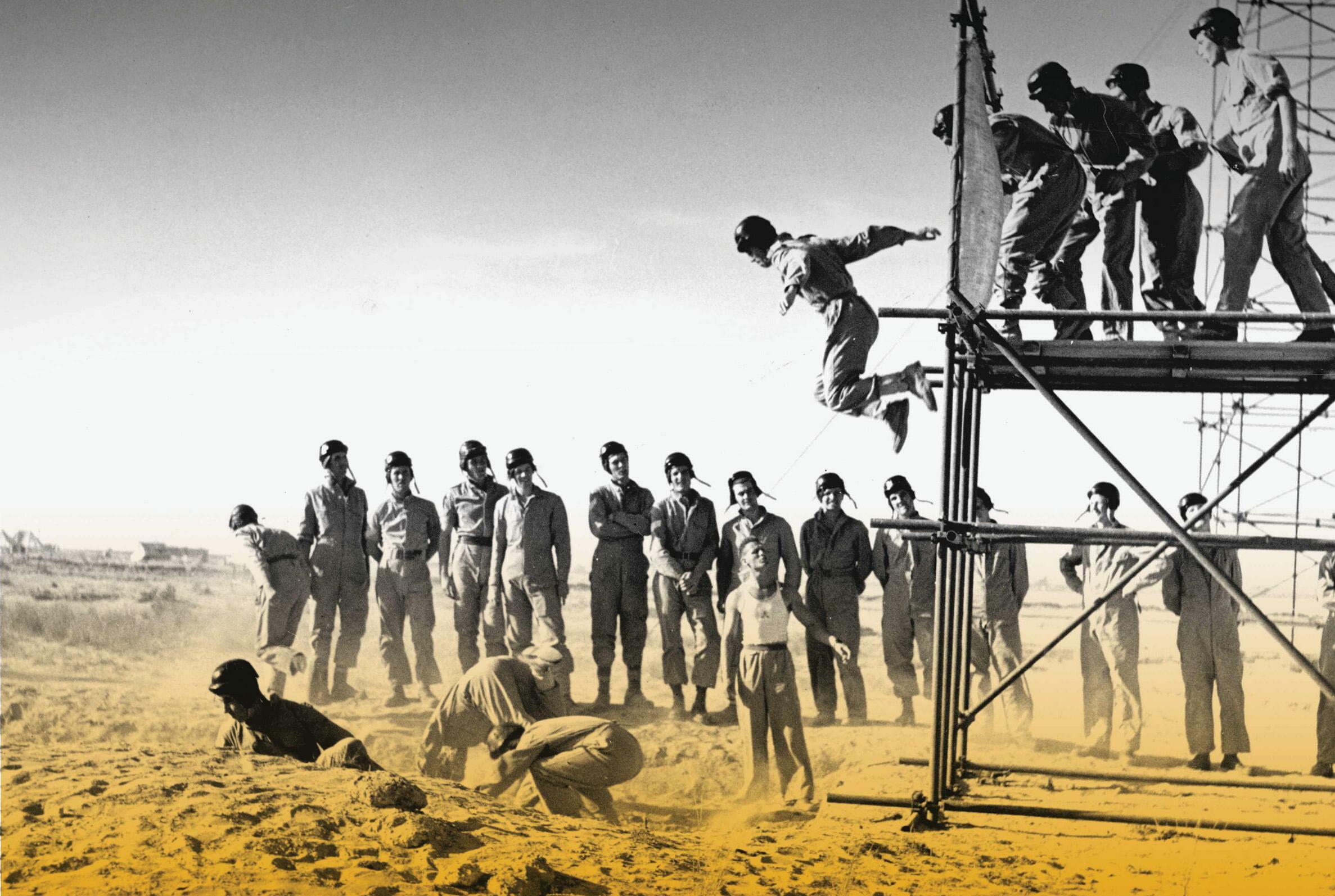
1 Fake news in fancy dress
How MICK GURMIN became a member of the SAS before it even existed
In 1941, a young British trooper based in Palestine was sent on an unlikely mission. Together with a fellow soldier named Smith, Mick Gurmin was dispatched to Cairo with instructions to spread an elaborate yarn around restaurants, bars and tourist hotspots. For the mission, Gurmin was issued with a uniform liberally sewn with parachute badges, to back up his membership of the 1st Special Air Service (SAS) Battalion parachute unit, which was completing its training in Transjordan. It was an intriguing costume – because the 1st SAS didn’t exist.
Both battalion and uniform were inventions of Lieutenant Colonel Dudley Clarke. He had recently arrived in the region, having been summoned by his friend and supporter Sir Archibald Wavell, British commander-in- chief for the Middle East. Clarke’s task was to deceive the enemy about British intentions – and the capture of an Italian officer had presented him with an opportunity. The officer’s diary revealed an Axis belief that British parachute troops were present in the Middle East. In truth, there were none – but Clarke spotted the chance to exploit an existing fear. He schemed a plot to convince enemy intelligence that 500 parachutists, all specialists in vehicle sabotage, had arrived in the region. This deception operation was codenamed ‘Abeam’, and Gurmin’s carefully staged performance was a key element.
This story is from the July 2023 edition of BBC History UK.
Start your 7-day Magzter GOLD free trial to access thousands of curated premium stories, and 8,500+ magazines and newspapers.
Already a subscriber ? Sign In
This story is from the July 2023 edition of BBC History UK.
Start your 7-day Magzter GOLD free trial to access thousands of curated premium stories, and 8,500+ magazines and newspapers.
Already a subscriber? Sign In

The Aztecs at war
RHIANNON DAVIES discovers why war was so important to the Mesoamerican people - and why they believed a badly cooked meal could prevent a soldier from shooting straight

Towering achievement
NATHEN AMIN explores a 13th-century stronghold that was built to subdue independent-minded Welsh people, yet has since become a symbol of courage in the face of overwhelming odds

Eighteenth-century mushroom ketchup
ELEANOR BARNETT shares her instructions for making a flavourful sauce with roots in south-east Asia

Goodbye to the gilded age
JOHN JACOB WOOLF is won over by an exploration of the Edwardian era, which looks beyond the golden-era cliché to find a nation beset by a sense of unease

The power of the few
Subhadra Das's first book catches two particular waves in current publishing.
The 'badass' icon
One of the problems with biography, if an author is not careful, is that it can quickly become hagiography.

Ghosts of Germany's past
KATJA HOYER is impressed by a study of a nation's attempts to grapple with the crimes it perpetrated during the Second World War

A window onto England's soul
SARAH FOOT has high praise for a book that traces the evolution of English Christianity over the course of 1400 years, through the lives of its greatest thinkers

"There was a general perception that Queen Victoria's mourning was neither normal nor acceptable”
JUDITH FLANDERS talks to Rebecca Franks about her new book, which delves into the customs surrounding dying, death and mourning in Victorian Britain

"Indigenous children were forcibly separated from their families"
HIDDEN HISTORIES... KAVITA PURI on the legacy of Canada's residential schools